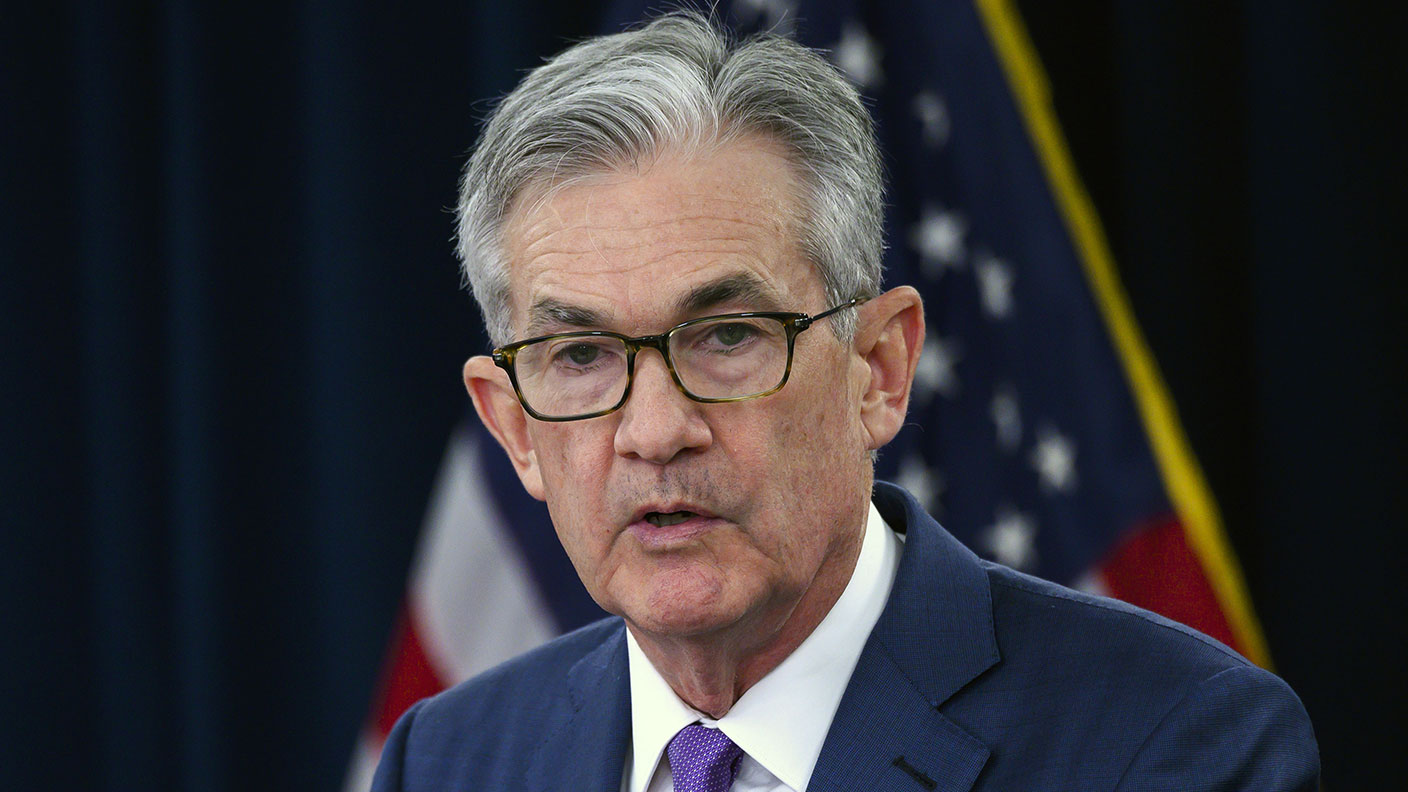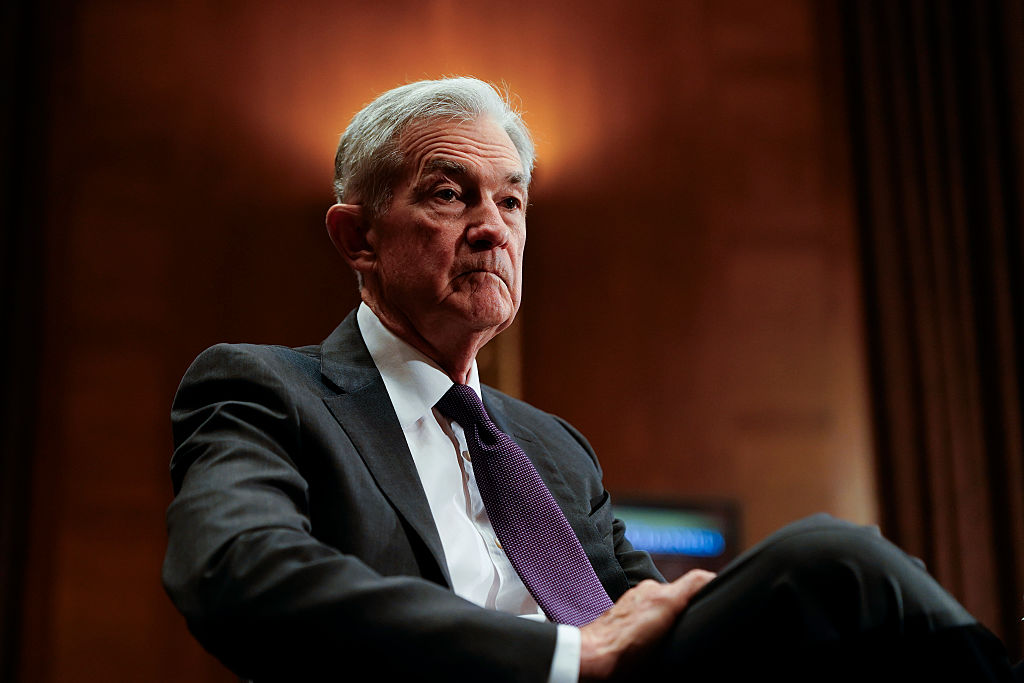Are we heading for another bond market tantrum?
The last time the US central bank tried tightening the purse strings, the bond markets threw a tantrum. With yields now rising, could we be about to see the same thing happen again? John Stepek explains what’s going on.


Get the latest financial news, insights and expert analysis from our award-winning MoneyWeek team, to help you understand what really matters when it comes to your finances.
You are now subscribed
Your newsletter sign-up was successful
Want to add more newsletters?

Twice daily
MoneyWeek
Get the latest financial news, insights and expert analysis from our award-winning MoneyWeek team, to help you understand what really matters when it comes to your finances.

Four times a week
Look After My Bills
Sign up to our free money-saving newsletter, filled with the latest news and expert advice to help you find the best tips and deals for managing your bills. Start saving today!
In 2013, the US economy looked as though it was properly recovering from the financial crisis. So the Federal Reserve chief at the time, Ben Bernanke, decided that it might be a good idea to stop printing quite as much money.
He told markets this. They threw a major wobbly, known as the “taper tantrum”. The big question today is: are we heading for a repeat performance?
The taper tantrum, part II?
The ten-year US Treasury bond now yields about 1.4%. In other words, the US government will pay you 1.4% interest a year if you agree to lend it money for a decade. In the grand scheme of things, that's a very low number. Before the start of 2020, you had to go back to the big deflation panic of 2016 (when Britain voted to leave the EU) to find the yield anywhere near that low. Prior to that, you're looking at the 1940s.
MoneyWeek
Subscribe to MoneyWeek today and get your first six magazine issues absolutely FREE

Sign up to Money Morning
Don't miss the latest investment and personal finances news, market analysis, plus money-saving tips with our free twice-daily newsletter
Don't miss the latest investment and personal finances news, market analysis, plus money-saving tips with our free twice-daily newsletter
However, as you might have noticed, 2020 was an odd year. When the global pandemic took hold, US Treasury yields ended up plumbing never-before-seen depths. In March last year at one point, the yield fell to less than 0.35%. And in summer it was still sitting around 0.5%. So while the yield on the ten-year is still extremely low, it has just about tripled in the last six months. That's a rapid move in a very important price.
Why is it moving higher? Because markets expect a strong recovery for the US economy. On top of that, they expect the US government to push through more “stimulus”. And on top of that, some expect the US government to go further and spend a lot more money on “greening” the country's infrastructure.
If bond yields rise because markets expect strong growth, that's probably not going to cause markets a major headache in the short term. But there's another reason why bond yields might rise, notes Oliver Jones of Capital Economics - and that's if they think that the Federal Reserve is going to tighten up monetary policy earlier than expected.
This is what happened in 2013's “taper tantrum”, when then-Fed chief Ben Bernanke rattled markets by attempting to map out an exit from quantitative easing, in response to an improving US economy.
So what's going on this time? Markets do seem to be rattled. The Nasdaq in particular has struggled over the past few days; gold prices have done likewise. So is another spasm of panic on the horizon?
How to play a more inflationary environment
The main issue here is not so much nominal interest rates, it's “real” rates (ie, interest rates after inflation). The main worry for markets is that rising real rates mean that monetary conditions are getting tighter in “real” terms. But if inflation keeps rising along with nominal interest rates then markets will find it hard to find reason to panic. That's more of a simple “return to normal” (or a return to levels seen before the pandemic, which were still pretty unusual).
As Jones points out, this seems the more likely scenario for now. The US government is planning to spend a lot of money. And yesterday, current Fed chief Jerome Powell reassured markets yet again that he has no interest in tightening monetary policy any time soon. He emphasised that he's not worried about the US government's $1.9trn stimulus package causing inflation.
“Inflation dynamics do change over time, but they don't change on a dime”, he told US politicians this week, quoted in the FT. “We don't really see how a burst of fiscal support or spending that doesn't last for many years would actually change those inflation dynamics.”
He's also been emphasising the Fed's employment target over the inflation target very heavily. So he's talking a good game. Will that be enough? I suspect so, for now at least. Investors are likely still underestimating the size of the recovery, and the scale of the inflationary comeback.
The Fed's main challenge probably still lies ahead – the need to convince markets in the coming months that it won't react to that rise in inflation, and instead look through it to some imaginary future where it goes down.
ING points out for example, that by May, even with relatively benign inflation readings, headline inflation in the US will easily rise above 3% and it could end up as high as 4%. And as we get beyond summer, “we could see real pressure on the Fed to justify what it's doing”.
Things might get tricky then. You'd probably need to see the Fed make an explicit commitment to stick to its employment target rather than its inflation target (which is what I suspect the emphasis will be). You might also then end up needing some sort of yield-capping strategy (ie, committing to buy more bonds) from the Fed to keep rates from spiking.
What does this mean for investors? Unless you're a day trader (bad idea) then you don't need to worry too much. I suspect markets will be edgy over the next few months and will eventually force the Fed to prove that it's serious about allowing inflation to run free.
But in terms of how to invest in a more inflationary, higher growth world, the most obvious option in terms of how to invest in this on the equity front, are value stocks, for reasons I've explained before. As investment bank Goldman Sachs notes, cyclical stocks have rebounded. But value stocks “still languish on a relative basis compared with their typical recoveries”.
We've written more on one of the best hunting grounds for cheap value stocks in the next issue of MoneyWeek magazine, out tomorrow. Get your first six issues free here if you don't already subscribe.
Get the latest financial news, insights and expert analysis from our award-winning MoneyWeek team, to help you understand what really matters when it comes to your finances.

-
 Can mining stocks deliver golden gains?
Can mining stocks deliver golden gains?With gold and silver prices having outperformed the stock markets last year, mining stocks can be an effective, if volatile, means of gaining exposure
-
 8 ways the ‘sandwich generation’ can protect wealth
8 ways the ‘sandwich generation’ can protect wealthPeople squeezed between caring for ageing parents and adult children or younger grandchildren – known as the ‘sandwich generation’ – are at risk of neglecting their own financial planning. Here’s how to protect yourself and your loved ones’ wealth.
-
 How a dovish Federal Reserve could affect you
How a dovish Federal Reserve could affect youTrump’s pick for the US Federal Reserve is not so much of a yes-man as his rival, but interest rates will still come down quickly, says Cris Sholto Heaton
-
 'Investors should brace for Trump’s great inflation'
'Investors should brace for Trump’s great inflation'Opinion Donald Trump's actions against Federal Reserve chair Jerome Powell will likely stoke rising prices. Investors should prepare for the worst, says Matthew Lynn
-
 The challenge with currency hedging
The challenge with currency hedgingA weaker dollar will make currency hedges more appealing, but volatile rates may complicate the results
-
 Will Donald Trump sack Jerome Powell, the Federal Reserve chief?
Will Donald Trump sack Jerome Powell, the Federal Reserve chief?It seems clear that Trump would like to sack Jerome Powell if he could only find a constitutional cause. Why, and what would it mean for financial markets?
-
 Can Donald Trump fire Jay Powell – and what do his threats mean for investors?
Can Donald Trump fire Jay Powell – and what do his threats mean for investors?Donald Trump has been vocal in his criticism of Jerome "Jay" Powell, chairman of the Federal Reserve. What do his threats to fire him mean for markets and investors?
-
 Freetrade’s new easy-access funds aim to beat top savings rates
Freetrade’s new easy-access funds aim to beat top savings ratesFreetrade has launched an easy-access exchange traded fund (ETF) range - here’s how the ETFs work and how they compare to the savings market
-
 Go for value stocks to insure your portfolio against shocks, says James Montier
Go for value stocks to insure your portfolio against shocks, says James MontierInterview James Montier, at investment management group GMO, discusses value stocks and slow-burn Minsky moments with MoneyWeek.
-
 Halifax: House price slump continues as prices slide for the sixth consecutive month
Halifax: House price slump continues as prices slide for the sixth consecutive monthUK house prices fell again in September as buyers returned, but the slowdown was not as fast as anticipated, latest Halifax data shows. Where are house prices falling the most?